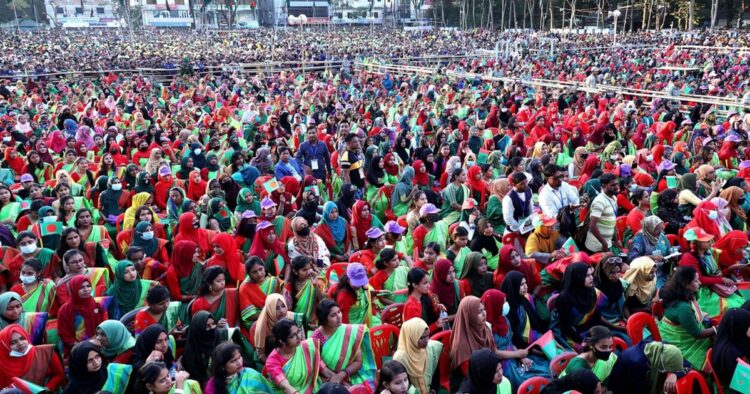As Bangladesh gears up for its upcoming elections on January 7, the main opposition party, Bangladesh Nationalist Party (BNP), is calling for a boycott, labeling the electoral process a “one-sided dummy election”. With key opposition leaders either jailed or in exile, the BNP demands Prime Minister Sheikh Hasina’s resignation, advocating for a neutral authority to oversee the polls.
The BNP’s Senior Joint Secretary General, Ruhul Kabir Rizvi, urged voters not to participate in the “dummy election” and emphasized their democratic right to boycott. Amidst the political turmoil, the BNP also called on government employees involved in organizing the election to quit, urging a suspension of services, including banking and the judicial system.
Meanwhile, Prime Minister Hasina launched her campaign for a fourth consecutive term, dismissing calls for her resignation. She urged people to exercise their constitutional right to vote and accused the BNP of instigating anti-government protests, which have led to at least 10 casualties in Dhaka since October.
In response to the opposition’s call for a boycott, Hasina questioned the need for violence, referencing a recent incident where a train was set on fire, resulting in the tragic death of four individuals, including a mother and her three-year-old son. The BNP denies involvement in any violence.
The electoral landscape includes 382 independent candidates, with over half affiliated with Hasina’s Awami League, contesting 221 out of 300 constituencies alongside official Awami League candidates. In comparison, 128 independents contested the 2018 election. The Awami League has also shared constituencies with its ally, the Jatiya Party, allowing the latter to field candidates in a total of 283 seats.
The BNP has labeled independent candidates affiliated with the ruling party as ‘dummy candidates,’ a claim denied by Awami League joint general secretary AFM Bahauddin Nasim, who emphasized the democratic right of anyone to contest elections.
Amid allegations of government targeting opposition leaders and supporters, rights groups are pressuring Bangladesh to ensure free, fair, and participatory elections, while Western nations call for transparency in the electoral process. The political tensions and contrasting narratives set the stage for a crucial and closely watched electoral event in Bangladesh.

















Comments